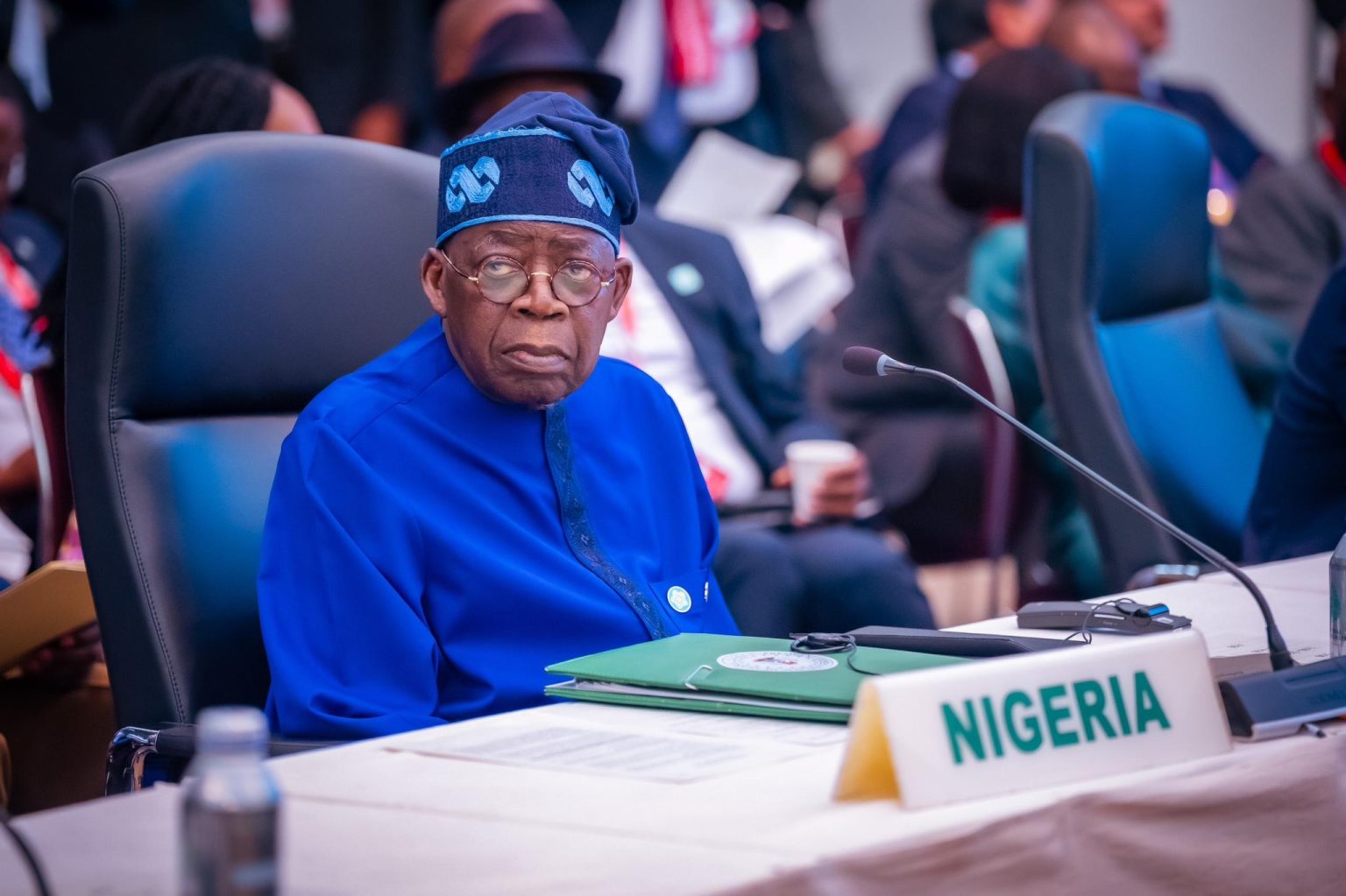Headlines
FG Moves to Reform Civil Service Disciplinary System for Greater Efficiency

By: Fabian Apechihin
The Federal Government is set to overhaul the disciplinary control system in the civil service to promote efficiency, accountability, and timely resolution of cases.
The Chairman of the Federal Civil Service Commission (FCSC), Prof. Tunji Olaopa, made this known during a one-day joint retreat between the FCSC and the Office of the Head of the Civil Service of the Federation (OHCSF).
In a statement issued on Tuesday by the Commission’s Head of Press and Public Relations, Taiwo Hassan, Olaopa emphasized that the review would drive culture change, value reorientation, and improve the overall disciplinary framework in the public sector.
He likened the relationship between the FCSC and OHCSF to that of “Siamese twins,” noting that both bodies share crucial responsibilities in policy implementation, regulatory enforcement, and leadership across the service.
Olaopa also underscored the need for stronger collaboration and communication between the two institutions to avoid misunderstandings, build trust, and enhance service delivery.
The FCSC chairman further advocated for an integrated system that links merit-based recruitment, competency-driven human resource management, and performance evaluation with the civil service wage structure, saying such reforms would help reposition government as an “employer of choice.”
Speaking on behalf of the Head of the Civil Service of the Federation, Dr. Folasade Yemi-Esan, Esther Walson-Jack praised Olaopa’s reform initiatives, describing the retreat as a renewed commitment to strengthening collaboration and efficiency within the civil service.
The renewed push for reform follows rising concerns about bureaucratic bottlenecks, delayed disciplinary actions, and weak accountability mechanisms in Nigeria’s public administration.
Headlines
“Nigeria Is in a Hurry to Celebrate Victory Over Enemies of the State,” Says Tinubu as He Decorates New Service Chiefs

By: Fabian Apechihin
President Bola Ahmed Tinubu has urged the newly appointed service chiefs to discharge their duties with utmost dedication and renewed commitment, declaring that “Nigeria is in a hurry to celebrate victory over enemies of the state.”
The President made this statement on Thursday during the decoration ceremony of the new service chiefs with their ranks at the Aso Rock Presidential Villa in Abuja.
Those decorated were General Olufemi Oluyede as Chief of Defence Staff, Lieutenant-General Wahidi Shaibu as Chief of Army Staff, Air Marshal Kennedy Aneke as Chief of Air Staff, and Vice Admiral Idi Abbas as Chief of Naval Staff.
The ceremony was attended by Vice President Kashim Shettima and the spouses of the newly promoted officers, who joined the President in performing the decorations.
In his address, Tinubu underscored the central role of security in fostering national development and reaffirmed his administration’s commitment to protecting the lives and property of all Nigerians.
“Security is an essential element without which everything else becomes meaningless,” the President stated. “There can be no sustainable development if this fundamental need is not met. Our people and our nation must remain secure to enjoy the dividends of governance.”
The elevation and decoration of the new military chiefs followed their confirmation by the National Assembly on Wednesday, after a closed-door screening session with lawmakers.
It will be recalled that, in a recent overhaul of the nation’s military hierarchy, President Tinubu appointed:
- Lieutenant General Olufemi Olatubosun Oluyede as Chief of Defence Staff,
- Major General Waidi Shaibu as Chief of Army Staff,
- Rear Admiral Idi Abbas as Chief of Naval Staff,
- Air Vice Marshal Sunday Aneke as Chief of Air Staff, and
- Major General Emmanuel Undiandeye retained as Chief of Defence Intelligence.
The new appointments mark a strategic restructuring of Nigeria’s security leadership aimed at strengthening the fight against insurgency, banditry, and other threats to national stability.
Headlines
FG Dismisses Coup Rumour, Reaffirms Confidence in Nigerian Military

By: Fabian Apechihin
The Federal Government has dismissed widespread rumours of an alleged military coup plot against President Bola Tinubu, declaring its full confidence in the loyalty and professionalism of the Nigerian Armed Forces.
Minister of Information and National Orientation, Mohammed Idris, made this known in an interview with The Punch on Sunday, insisting that the administration has “no reason whatsoever” to doubt the assurances given by the Defence Headquarters, which had earlier denied reports linking the detention of 16 military officers to a coup attempt.
“The Federal Government has no reason to doubt the military on what it has said,” Idris stated.
“We believe the Armed Forces of Nigeria remain committed to protecting the nation’s territorial integrity and strengthening the fight against insecurity. The government commends their sacrifice and will continue to support them in safeguarding the country.”
The minister’s remarks came a day after the Director of Defence Information, Brigadier General Tukur Gusau, firmly debunked a report by Sahara Reporters alleging that the detention of 16 officers was connected to a failed coup plot and the cancellation of the 65th Independence Day parade.
Gusau described the publication as “false, mischievous, and deliberately aimed at creating unnecessary tension and public distrust.”
He clarified that the cancellation of the October 1 Independence Day parade was a purely administrative decision — taken to allow President Tinubu attend a key bilateral meeting abroad and to enable military units sustain ongoing counterinsurgency operations nationwide.
On the issue of the detained officers, Gusau said their case was “an internal disciplinary process” and not related to any political matter.
“The investigation involving the 16 officers is routine, aimed at upholding discipline and professionalism within the ranks,” he explained. “An investigative panel has been constituted, and its findings will be made public in due course.”
Reaffirming the military’s constitutional role and unwavering commitment to civilian rule, Gusau stressed emphatically:
“Democracy is forever.”
Headlines
BREAKING: Tinubu Drops Fiscal Bombshell: FIRS, Customs, NUPRC Can No Longer Keep Billions — Every Kobo Now Goes to Nigerian

In a landmark move to boost transparency and strengthen Nigeria’s economy, President Bola Ahmed Tinubu has abolished the long-standing practice where revenue-generating agencies like the Federal Inland Revenue Service (FIRS), Nigeria Customs Service (NCS), and the Nigerian Upstream Petroleum Regulatory Commission (NUPRC) withheld huge sums as their “cost of collection.”
The new directive, announced by Minister of Finance and Coordinating Minister of the Economy, Mr. Wale Edun, mandates that every kobo collected must now go directly into the Federation Account, as required by the Constitution.
Until now, agencies deducted massive amounts before remitting funds — for instance, FIRS alone retained over ₦250 billion in 2024. This practice reduced what was available for federal, state, and local governments through the Federation Account Allocation Committee (FAAC).
With Tinubu’s reform, more money will now be available to fund roads, schools, hospitals, jobs, and critical infrastructure across the country.
“This is about fairness, transparency, and accountability. Nigerians deserve to feel the impact of every naira collected,” Edun emphasized.
The policy also ties into Tinubu’s Renewed Hope Agenda, ensuring fiscal discipline while funding social protection programs. This October, the government is reaching 10 million vulnerable households with direct cash transfers, with a target to cover 50 million households by year’s end.
Analysts hail the reform as a “turning point in Nigeria’s fiscal history”, marking the end of leakages and a bold step toward a transparent, people-driven economy.
-

 Uncategorized5 years ago
Uncategorized5 years agoFG, states urged to harness flooding for ranching, others with technology – Agbaje
-

 Headlines10 years ago
Headlines10 years agoBreaking: EFCC seals Borno House of Assembly, as Hon members take to their heels
-

 News11 years ago
News11 years agoNigeria Security Operatives Stage Manhunt For Homosexual Perpetrator
-

 News9 years ago
News9 years agoHow 21-year-old Girl fled community over accusation of lesbianism
-

 News10 years ago
News10 years agoYobe Gov Moves Against Deputy
-

 Opinion7 years ago
Opinion7 years ago7 signs she has friend zoned you
-
Technology4 years ago
Online job placement company headhunts women
-

 Headlines10 years ago
Headlines10 years agoBorno Dep Gov Abducts Another Church Leader





